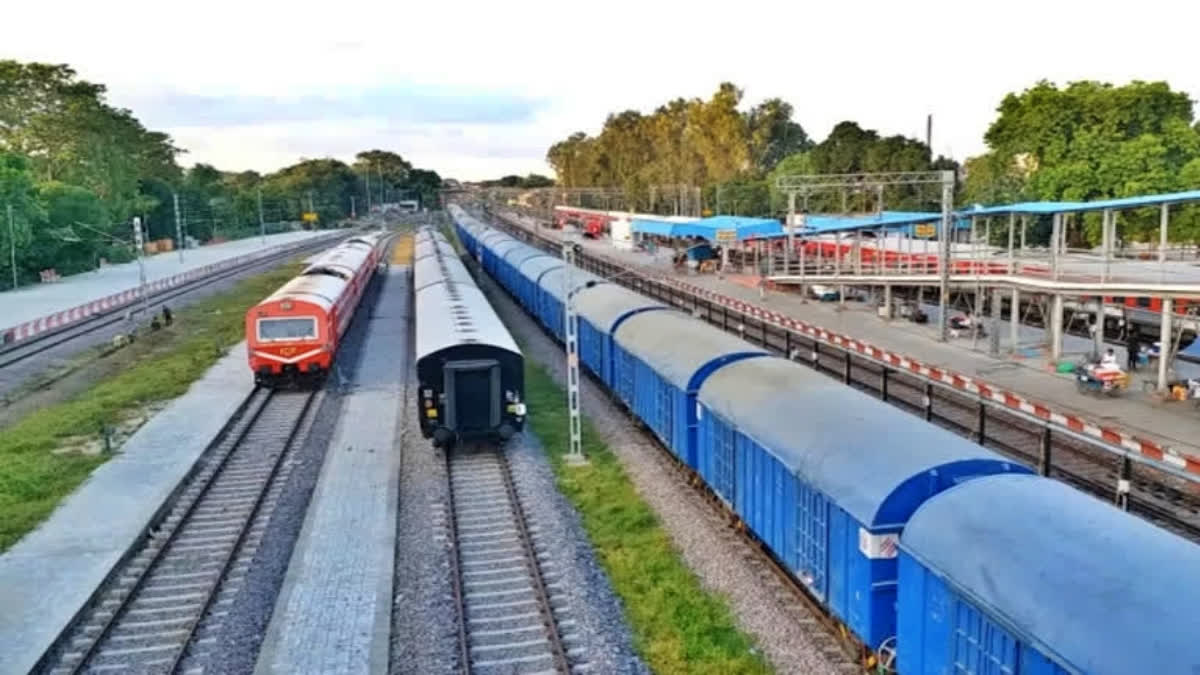A few months ago, DM Kathir Anand, an MP from Tamil Nadu, raised a question in the Lok Sabha regarding the possible exclusion of the poor and downtrodden from the Indian Railway's services due to increased travel fees. At that time, the Centre denied any such situation. However, the Railways, which labels its trains as "Express," has faced criticism for indirectly increasing ticket fares, leading to passenger hardships, and making travelling unaffordable for the common masses.
Ordinary sleeper coaches, primarily used by the poor, migrant workers, and the lower middle class, are gradually disappearing. Instead, Indian Railways is adding AC coaches to many overcrowded trains, causing inconveniences for common people on long journeys. Additionally, the notorious 'Tatkal' scheme exploits passengers by charging 30-90 percent more on ticket prices. The "flexifare" policy, adjusting fares according to demand, further reflects the commercial nature of Indian Railways. To compound matters, the Railways Department routinely issues a significant number of waiting list tickets and imposes exorbitant cancellation charges.
Recent information obtained through the Right to Information Act reveals that the department has earned over Rs 10,000 crore between 2019-2022. Due to the withdrawal of concessions, high fares, and other factors, passenger numbers have declined, and some routes face a shortage of trains. The government has recently decided to temporarily reduce the prices of AC chair-car and executive class tickets by up to 50 percent on trains with less than fifty percent occupancy over the past thirty days.
Also read: Of money flowing in polls: Is this democracy?
In order to truly prioritize passenger benefits, Indian Railways must shift its focus away from profits and rationalize fares completely. Emphasizing safety should be paramount. Proper management of the railways is a vital social responsibility of the government. While the introduction of Vande Bharat trains hints at a new era for Indian Railways, the tragic train accident in Odisha highlights the failure to rectify fatal flaws. Japan stands out for operating the fastest and safest trains known for their punctuality.
The experiences of countries like France and Italy prove that keeping railways in the public sector contributes to the public interest. China has demonstrated remarkable competence in maintaining safe train journeys even during unexpected disruptions. In contrast, Indian Railways has lagged behind in maintaining high safety standards, as evidenced by the investigation report of the Odisha incident. From 2017 to 2021, 1127 accidents occurred due to train derailments, with incorrect tracks accounting for 26 percent of these incidents.
A CAG report revealed the dire state of railway line modernization funds, indicating the root cause of the problem. It also exposed the failure to fully utilize the funds allocated for track improvements. Such systemic issues pose a threat to commuters' lives. Furthermore, the delay in filling crucial positions that ensure railway safety is concerning. To generate additional revenue without burdening passengers, Railways should increase its share of domestic freight and prioritize infrastructure development. Embracing modern technologies, providing periodic training to staff, and fostering accountability are crucial aspects that need immediate attention. Only then can the railways truly become a key instrument in the nation's journey towards progress.
(Translated version of the editorial first published in Eenadu)



